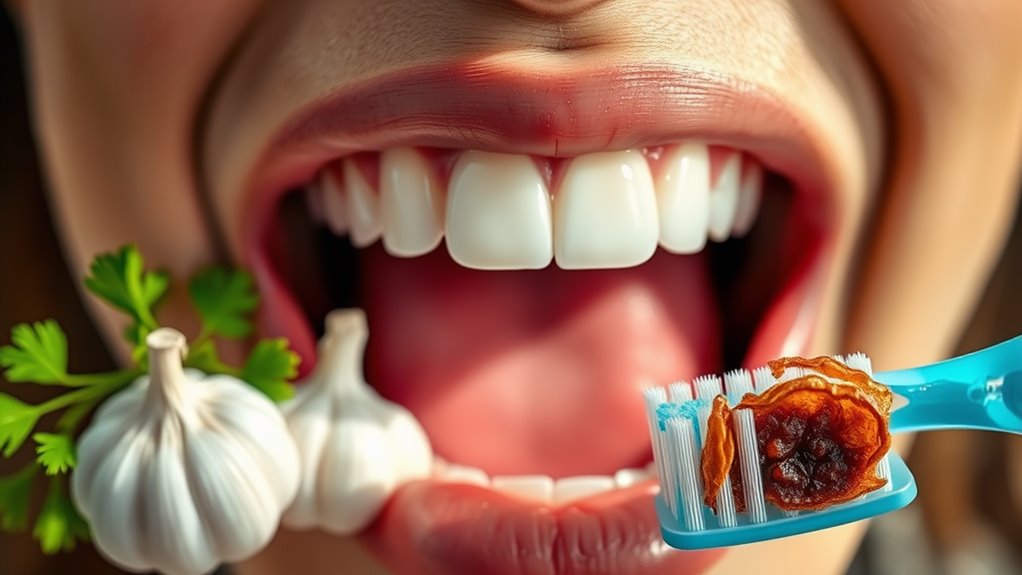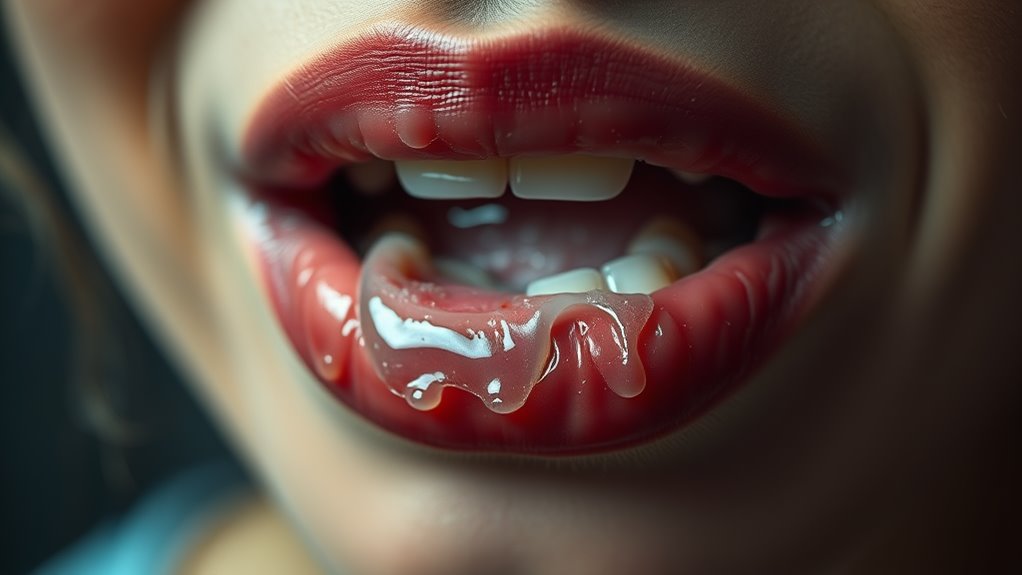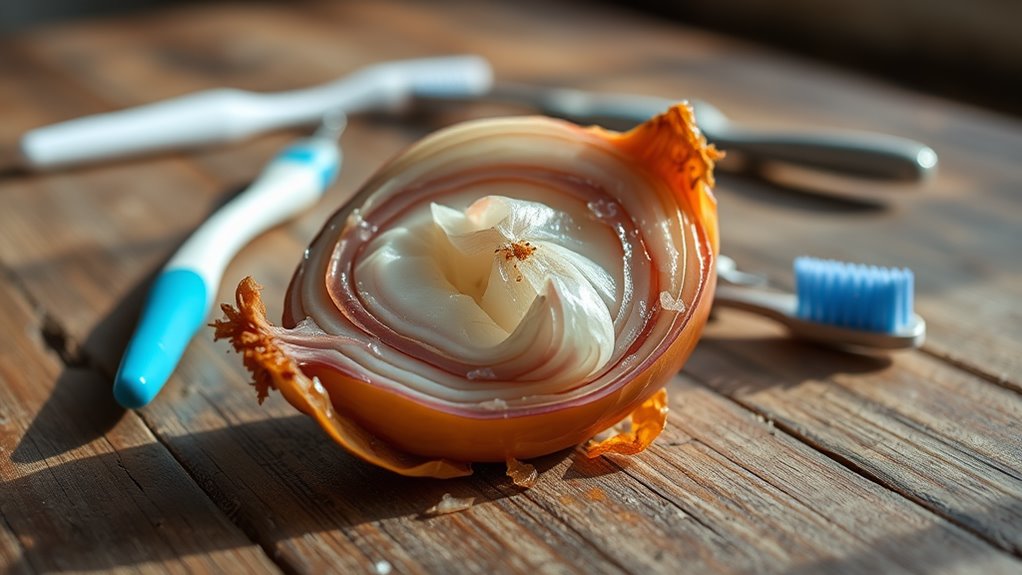7 Common Causes of Bad Breath (And How to Eliminate Them)
Key Takeaways
- Poor oral hygiene leads to bacteria growth that causes bad breath; regular brushing and tongue cleaning can help eliminate odors.
- Dry mouth allows bacteria to thrive; staying hydrated and chewing sugar-free gum can combat this issue.
- Certain foods like garlic and onions release odor-causing compounds; good oral hygiene and hydration can minimize their effects.
- Tobacco products contribute to persistent bad breath and dry mouth; cessation can significantly improve breath freshness.
- Medical conditions such as diabetes and kidney disease can cause specific odors; consulting healthcare providers is essential for proper management.
Poor Oral Hygiene
When you neglect your oral hygiene, it’s not just your teeth that suffer—bad breath often follows.
Poor brushing and flossing allow food particles and plaque to accumulate, leading to bacteria growth.
These bacteria are significant causes of bad breath, producing foul-smelling compounds. Regularly cleaning your teeth and tongue minimizes this risk, ensuring fresh breath and overall oral health. Additionally, imbalanced oral bacteria can exacerbate the issue, making it crucial to maintain a balanced oral care routine.
Dry Mouth
Saliva plays a vital role in maintaining oral health, and a decrease in its production can lead to dry mouth, a common but often overlooked cause of bad breath.
When you experience dry mouth, bacteria thrive, producing unpleasant odors. Underlying medical conditions may also contribute to dry mouth symptoms, making it important to consider a thorough evaluation if dryness persists.
To combat this issue, stay hydrated, chew sugar-free gum, and consider speaking with your dentist about potential solutions. Keeping your mouth moist is essential.
Certain Foods
Dry mouth isn’t the only contributor to bad breath; certain foods can also play a considerable role.
Foods like garlic, onions, and certain spices contain volatile sulfur compounds, which your body releases during digestion. As these compounds enter your bloodstream and are expelled through your lungs, they can considerably impact your breath. Maintaining good oral hygiene habits, such as brushing twice daily, can help mitigate their effects. Staying hydrated and maintaining oral hygiene can help mitigate their effects.
Tobacco Products
Tobacco products are notorious for contributing to bad breath, and the effects can be immediate and long-lasting. Smoking or chewing tobacco dries out your mouth, allowing bacteria to thrive. Here’s a quick look at their impact:
| Tobacco Product | Immediate Effect | Long-term Effect |
|---|---|---|
| Cigarettes | Bad odor | Gum and tooth issues |
| Chewing Tobacco | Stale taste | Oral cancer risk |
| Cigars | Strong, lingering smell | Chronic breath issues |
Gum Disease
Gum disease, often underestimated, is a significant contributor to bad breath.
When bacteria build up along your gums, they produce unpleasant odors. Maintaining good oral hygiene can not only improve your breath, but also help combat poor oral hygiene, which is a common cause of halitosis.
Here are three ways to combat gum disease and improve your breath:
- Maintain a consistent oral hygiene routine, including brushing and flossing.
- Visit your dentist regularly for check-ups.
- Use antibacterial mouthwash to help reduce bacteria levels.
Medical Conditions
Certain medical conditions can greatly contribute to bad breath.
For example, diabetes can lead to a unique odor due to high blood sugar levels, while kidney disease may produce a uremic breath that’s quite distinct.
Additionally, respiratory infections often result in foul-smelling breath due to the accumulation of bacteria in the respiratory tract.
Diabetes and Bad Breath
While managing diabetes can involve a range of health complications, one often overlooked issue is bad breath, or halitosis.
Elevated blood sugar levels can lead to a fruity odor in your breath.
To combat this, you can:
- Maintain proper blood sugar control.
- Practice good oral hygiene regularly.
- Stay hydrated to help wash away bacteria.
Implementing these steps can markedly improve your breath.
Kidney Disease Connection
If you have kidney disease, you might notice an unusual change in your breath that can be linked to your condition.
This occurs due to the accumulation of toxins in your body, which the kidneys can’t adequately filter.
As a result, your breath may develop a characteristic ammonia-like odor.
It’s essential to manage your kidney health to minimize these symptoms.
Respiratory Infections Impact
When you suffer from respiratory infections, changes in your breath may signal underlying issues.
These infections can lead to bad breath due to bacteria buildup, mucus accumulation, or inflammation in your airways. To address this, consider:
- Staying hydrated to thin mucus.
- Practicing good oral hygiene.
- Consulting a healthcare provider for persistent symptoms.
Taking these steps can help combat the unpleasant odor.
Medications
Certain medications can particularly contribute to bad breath, often as a side effect.
Drugs that cause dry mouth, like antihistamines, antidepressants, and certain blood pressure medications, reduce saliva production, leading to odor-causing bacteria growing in your mouth.
If you suspect your medication is the issue, consult your healthcare provider. They may adjust your prescription or recommend solutions to combat the problem.




